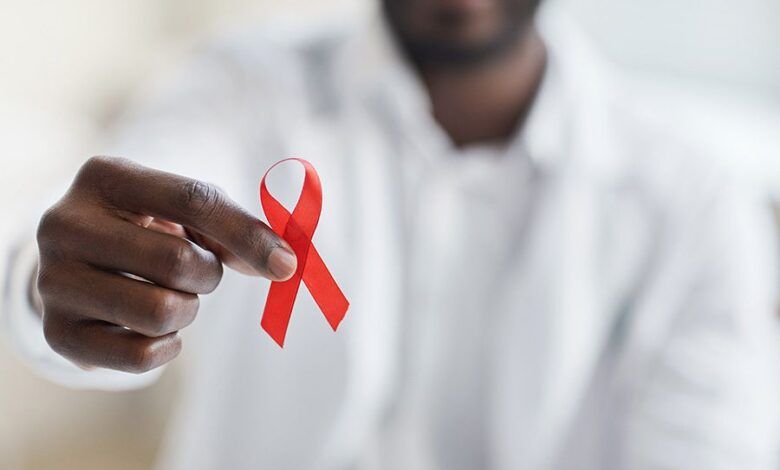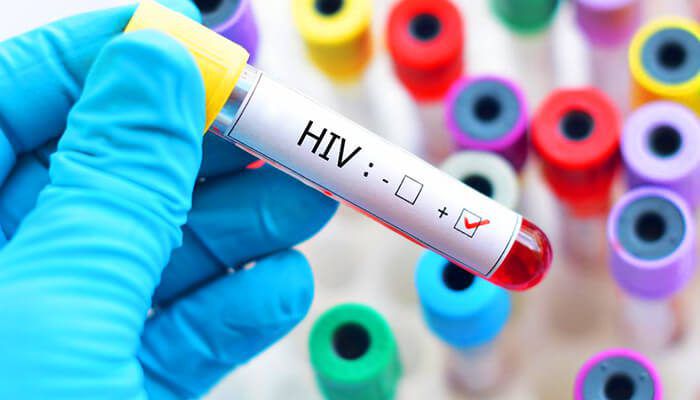Ghana recorded 15,290 new HIV infections, 12,614 AIDS-related deaths in 2024 – National HIV Estimates

Ghana is facing a significant challenge in its fight against HIV, with new data revealing a concerning trend and highlighting areas where efforts must be intensified. The latest National and Sub-National HIV and AIDS Estimates and Projections for 2024 paint a sobering picture, underscoring the urgent need for a more robust national response.
Last year, Ghana recorded 15,290 new HIV infections, with a distressing 12,614 AIDS-related deaths. A particularly striking aspect of these figures is the pronounced impact on women; females accounted for 10,303 (67.4%) of new infections, significantly outnumbering the 4,987 (32.6%) male cases. Currently, 334,721 Ghanaians are living with the virus, including 18,229 children – representing 5.4 per cent of the total. On average, the country saw 42 new HIV infections among adults and children every single day in 2024.

Launching the 2024 HIV Estimates in Accra, Deputy Chief of Staff, Nana Oye Bampoe Addo, stressed that “the figures emphasised the feminisation of the HIV epidemic and highlighted the need for Ghana to prioritise women and children in its HIV prevention and response.”
Bringing Forex, Commodities, and Global Indices to Ghanaian Traders
Exclusive video shows the wrecked Lamborghini Diogo Jota and his brother were in during the fatal crash in Spain…
READ ALSO: She urged immediate action to bolster community support systems, tackle the persistent stigma and discrimination faced by those living with HIV and AIDS, and expand access to vital healthcare services.

A significant hurdle remains in achieving the ambitious UNAIDS 95-95-95 targets by 2025, which aim for 95 per cent of people living with HIV to know their status, 95 per cent of those diagnosed to be on Antiretroviral Therapy (ART), and 95 per cent of those on ART to achieve viral suppression. Ghana’s current projections fall short, with only 68 per cent knowing their HIV status, 69 per cent of those diagnosed on ART, and 90 per cent achieving viral suppression.
Despite these challenges, the life-saving impact of ART is undeniable. The projections indicate that 229 deaths were averted each week, preventing a total of 12,358 deaths throughout 2024 due to these crucial treatments. Ms Bampoe Addo affirmed the government’s commitment to ensuring sustained domestic funding for HIV prevention and response, integrating HIV priorities into broader health strategies, and adopting innovative, data-driven approaches to improve service delivery. She noted that these estimates would serve as a vital guide for resource allocation, policymaking, and community engagement in the fight against the epidemic.
ALSO READ: effective ways to deal with a gut-wrenching heartbreak
Dr. Kharmacelle Prosper Akanbong, Acting Director General of the Ghana AIDS Commission (GAC), reinforced that “ending the HIV epidemic in Ghana would require collective action, sustained investment and unwavering solidarity.”

He highlighted that the epidemic continues to disproportionately affect certain regions and vulnerable populations, emphasising that “addressing these inequalities must remain at the heart of our national response if we are to leave no one behind.”
Dr Emmanuel Teviu, Acting Programme Manager for the National AIDS Control Programme, pointed out that while Ghana has made commendable progress in viral suppression among those on treatment, the primary hurdles lie in the first two 95s: ensuring people living with HIV are diagnosed and promptly begin treatment.
READ ALSO: Young corporate worker sacked after viral video complaint about 3K salary goes viral
He passionately advocated for the widespread adoption of HIV self-testing to bridge these gaps, stating, “Self-testing provides a discreet, convenient, and empowering option for individuals, particularly those who are difficult to reach through traditional facility-based services.” Dr. Teviu believes that self-testing has the potential to significantly boost testing coverage, especially among men, young people, key populations, and other groups who might otherwise avoid engaging with the healthcare system.

The annual National and Sub-National HIV and AIDS Estimates and Projections serve as a strategic compass, continuously guiding Ghana’s efforts in HIV prevention, treatment, care, and support. The data gleaned from these estimates is crucial for assessing progress, identifying new challenges, and fine-tuning strategies towards the ultimate goal of ending AIDS as a public health threat by 2030.








